
Are you a health-conscious person facing the problem of finding a healthy replacement snack?
Well, you are not alone many of us are facing this challenge.
Indian market is filled with brands that claim to be so-called “healthy and nutritious”. They are nothing but scams. They are filled with misleading labels, hidden ingredients, false claims, etc.
And since there is no solution to be found we submit to these challenges and consume the products that have beautiful labels with false promises.
Stuck with the same dilemma Suhasini and Anindita the sibling jodi tried to solve this for us. The health-conscious duo are big-time food lovers, but they wanted to remove the factor of “Guilt” out of it.
With inspiration from “Kind Bar – founded by Daniel Lubetzky” they wanted to make something similar. The aim was to create a product that has natural ingredients, free from artificial additives, preservatives, and excessive sugar. They identified the gap in the Indian market for genuinely healthy and tasty snack options and tried to fill it.
Thus, they founded the FMCG brand – “Yoga Bar” in 2015.
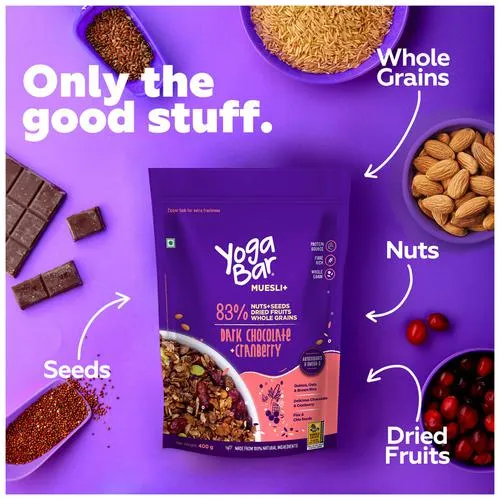
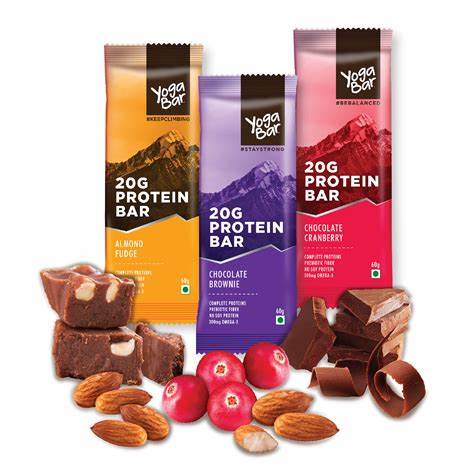
Suhasini and Anindita Sampath founded Yoga Bar with a vision centered on promoting health and wellness. A crucial part of their vision was educating consumers about nutrition, providing transparent labeling and clear nutritional information to help people make healthier food choices.
The sisters emphasized quality and transparency in their products. They were committed to using high-quality, natural ingredients to ensure their product’s purity and nutritional value. Honest marketing was also a key aspect of their vision, focusing on building a trustworthy brand by being transparent about what was in their products and avoiding exaggerated health claims. Innovation in healthy snacking was another priority, offering a diverse range of products that catered to different dietary needs and preferences, ensuring that healthy eating was enjoyable with a variety of flavors and product types.
Accessibility and community building were integral to their strategy. They sought to make healthy snacks widely available in both urban and semi-urban areas through various retail and online channels, providing convenient, on-the-go options for busy lifestyles. Additionally, they envisioned creating a community around Yoga Bar, where consumers could engage, share experiences, and get support on their health journeys. Their commitment to sustainability and social responsibility included eco-friendly practices and giving back to the community through various initiatives. This multi-faceted vision has guided Yoga Bar’s growth and success, establishing it as a trusted brand in the health food industry.
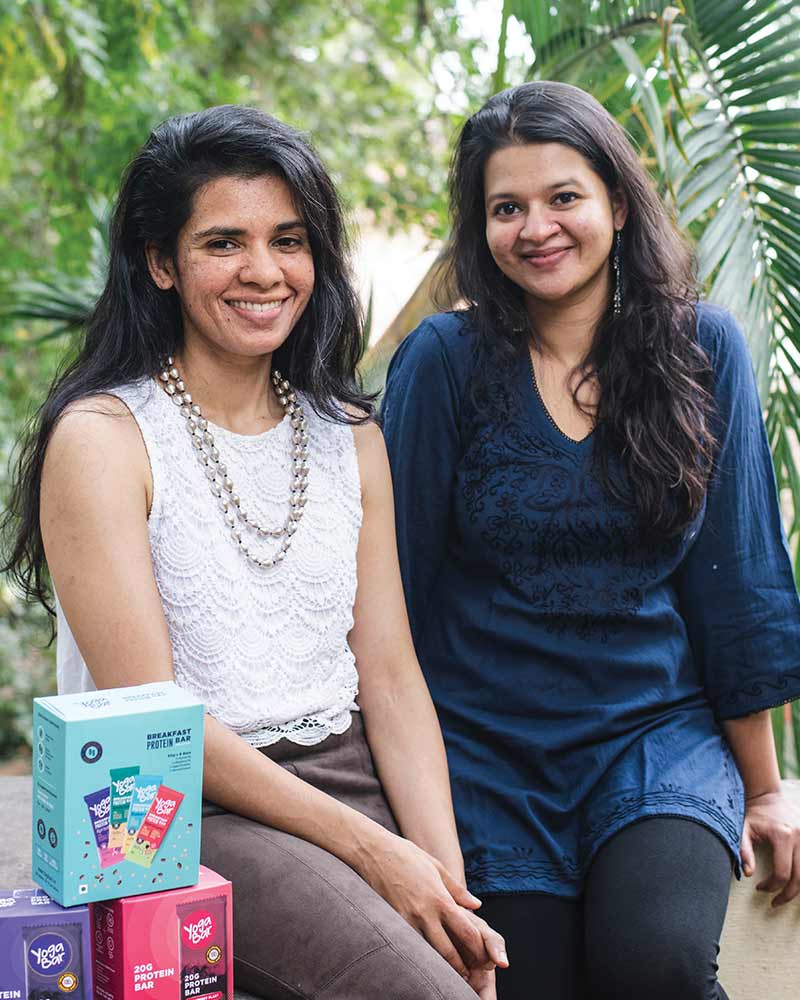
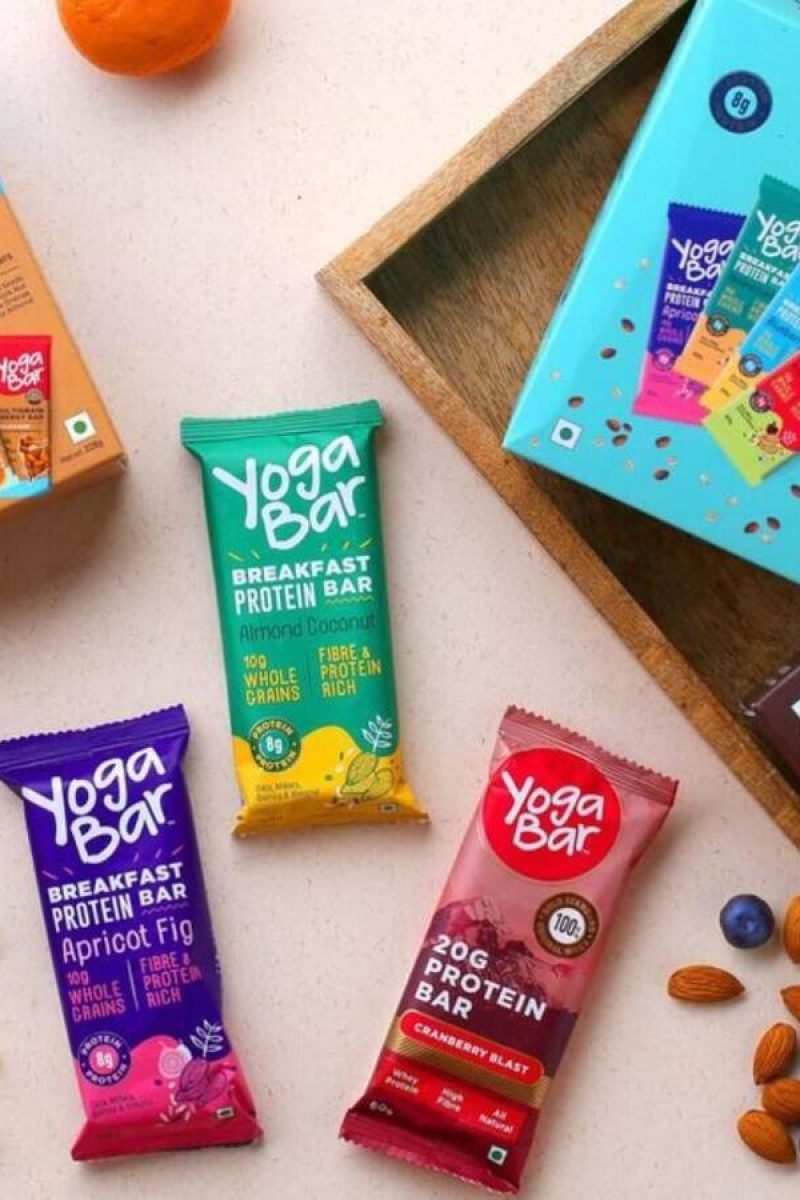
Let’s understand how 2 sisters from Bangalore built this magnificent brand.
Selecting a brand name is a crucial step in setting up a brand and they excelled it to do so.
“Yoga Bar” draws inspiration from the principles of yoga, which emphasize balance, health, and holistic well-being. They wanted a name that would resonate with health-conscious consumers and communicate their commitment to natural, wholesome, and balanced nutrition.
By incorporating “Yoga” into the brand name, they aimed to convey a sense of natural, balanced nutrition that complements a healthy lifestyle, resonating with their target audience of health-conscious consumers. This name choice also helped differentiate their products in the crowded health food market by emphasizing the brand’s dedication to purity and wellness.
The sisters began by conducting extensive research on nutrition and healthy eating. They experimented with various recipes in their home kitchen, focusing on using natural, wholesome ingredients without any artificial additives or preservatives. After numerous trials, they developed a range of protein bars and muesli that met their high standards for taste and nutrition.
They also secured seed funding of approximately $400,000 (INR 2.7 crore) in 2015, which helped them with initial product development, marketing, and setting up distribution channels. One of the early challenges they faced was building consumer trust in a market crowded with misleading health claims. They addressed this by maintaining high standards of quality and transparency.
From 2018 to 2020, Yoga Bar experienced significant growth, bolstered by a Series A funding round of $3 million (INR 20 crore) from investors like Fireside Ventures. This investment allowed the company to scale operations, enhance marketing efforts, and expand its product portfolio, leading to an annual revenue increase of approximately 70-80% year-on-year, with revenues surpassing INR 50 crore ($7 million) by 2020. In the pre-acquisition phase from 2021 to 2023, Yoga Bar secured a Series B funding round of $6 million (INR 45 crore) from Elevation Capital, which was used to further scale production, expand distribution networks, and invest in R&D for new product development.
And in 2024, Yoga Bar, now under ITC’s ownership, achieved an estimated annual revenue of INR 150 crore ($18 million), reflecting a strong year-on-year growth of 30-40%. The brand has expanded significantly, reaching over 30,000 retail outlets and diversifying its product range with new flavors and categories.
The Marketing mix:
Product
Product Range:
- Protein Bars: A variety of flavors such as almond fudge, chocolate chunk, and peanut butter, catering to different taste preferences.
- Muesli and Granola: Options include variants with fruits, nuts, seeds, and chocolate to cater to diverse consumer preferences.
- Oats: Different types of oats with added health benefits like high fiber and protein content.
Quality and Ingredients:
- Focus on natural, wholesome ingredients.
- No artificial additives, preservatives, or excessive sugars.
- Transparent nutritional labeling to build consumer trust.
Innovation:
- Continuous development of new flavors and product lines.
- Introduction of limited-edition products and seasonal flavors to keep the product line-up exciting and relevant.
Price
Pricing Strategy:
- Positioned as a premium health food brand, reflecting the high quality and natural ingredients used.
Value for Money:
- Ensuring that the prices reflect the nutritional benefits and the superior quality of the ingredients.
Promotions and Discounts:
- Periodic discounts and promotional offers to attract new customers and retain existing ones.
- Bundling options and subscription plans offer price benefits for regular consumers.
Place
Distribution Channels:
- Online Presence: Strong focus on e-commerce, with products available on the brand’s website and major online marketplaces like Amazon, Flipkart, and BigBasket.
Retail Outlets:
- Presence in major supermarkets, health stores, gyms, and specialty food stores across urban and semi-urban areas.
Partnership with ITC:
- Leveraging ITC’s extensive distribution network to penetrate deeper into tier 2 and tier 3 cities.
International Expansion:
- Exploring opportunities to enter international markets through e-commerce platforms and partnerships with global health food retailers.
Promotion
Digital Marketing:
- Active social media presence on platforms like Instagram, Facebook, and Twitter to engage with health-conscious consumers.
- Influencer collaborations with fitness experts, nutritionists, and health bloggers to promote products authentically.
Content Marketing:
- Creation of valuable content related to health, nutrition, and fitness to educate and engage consumers.
- Regular blogs, videos, and newsletters providing tips, recipes, and health information.
Sampling and Events:
- Conducting sampling campaigns in gyms, corporate offices, and health events to allow potential customers to try the products.
- Participation in health and wellness expos to increase brand visibility and connect with the target audience.
Advertising:
- Strategic use of digital ads on platforms like Google and Facebook to reach a broader audience.
- Print and TV advertising campaigns, especially after the partnership with ITC, to enhance brand recognition.
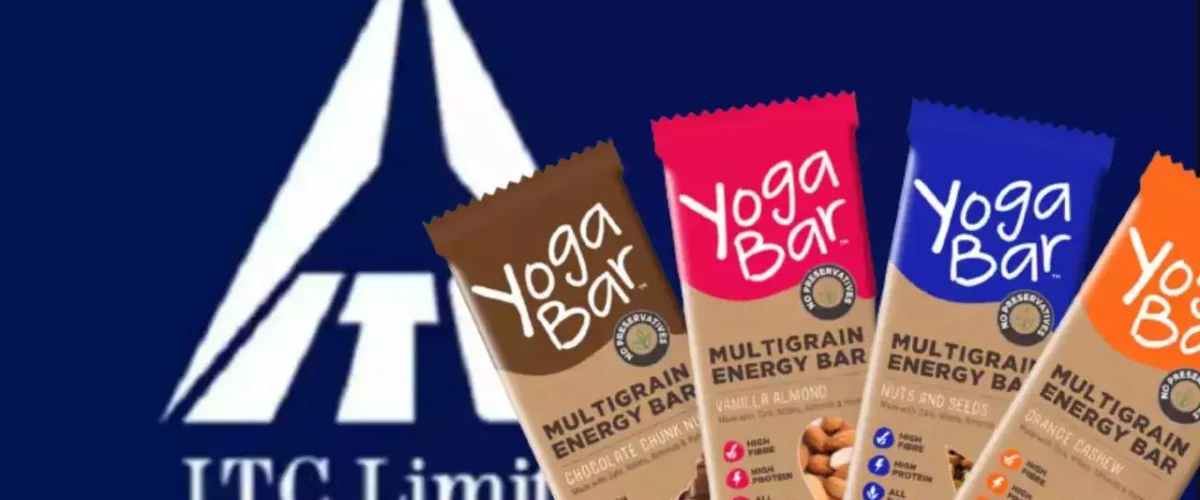
Collaboration with ITC: Yoga Bar's Strategic Partnership
Strategic Partnership Overview
Yoga Bar’s collaboration with ITC was motivated by mutual interests in promoting healthy snacking and expanding market reach. The partnership aimed to leverage ITC’s extensive distribution network and marketing expertise to scale Yoga Bar’s operations. This strategic alignment provided Yoga Bar with the financial support needed to enhance its product lines, marketing efforts, and penetration into both urban and rural markets, significantly increasing its market presence and operational efficiency.
Benefits and Challenges
The collaboration brought numerous benefits, including enhanced distribution, operational efficiency, and marketing capabilities. ITC’s distribution network expanded Yoga Bar’s market reach to tier 2 and tier 3 cities, while advanced supply chain logistics ensured consistent product availability and quality. Additionally, ITC’s marketing resources boosted brand visibility and consumer awareness. However, the partnership also posed challenges such as cultural integration and maintaining Yoga Bar’s brand identity. Effective communication and collaboration were crucial in managing these challenges and aligning strategies.
Outcomes and Future Prospects
Post-collaboration, Yoga Bar experienced significant growth in market share and revenue, with products becoming widely available across diverse retail channels. The partnership with ITC enhanced consumer trust in Yoga Bar, reinforcing the brand’s commitment to quality and health. Continued investment in R&D and product development ensured sustained innovation, keeping Yoga Bar at the forefront of the health snack market. Overall, the strategic partnership with ITC has been a milestone for Yoga Bar, facilitating market expansion, operational efficiency, and innovation while maintaining its core values.
Yoga Bar’s collaboration with ITC was built on a shared vision of promoting healthy snacking and expanding into the health and wellness market. The partnership provided Yoga Bar with financial support, enabling it to expand product lines, enhance marketing efforts, and penetrate urban and rural markets more effectively. ITC’s extensive distribution network significantly increased Yoga Bar’s market reach, while advanced supply chain and logistics capabilities improved operational efficiency, reduced costs, and ensured consistent product availability. Additionally, ITC’s marketing resources and brand-building expertise allowed Yoga Bar to invest in larger-scale campaigns, increasing brand visibility and consumer awareness. The collaboration also facilitated access to ITC’s R&D capabilities, accelerating product innovation and keeping the brand relevant and exciting for consumers.
Conclusion:
Yoga Bar emphasized on transparency and sustainability in its operations, ensuring that its ingredients are ethically sourced and free from artificial additives. Yoga Bar has gained popularity for its commitment to promoting a healthier lifestyle and has expanded its product lineup to include various flavors and formats to suit different dietary needs and preferences. With a strong presence both online and in retail stores, Yoga Bar continues to be a prominent player in the health food market, appealing to consumers looking for tasty yet nutritious snack options.
